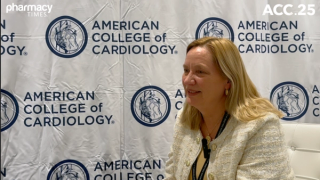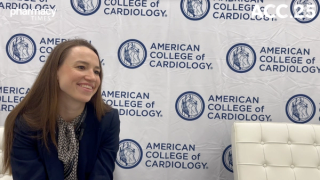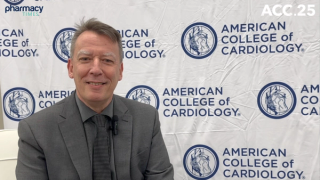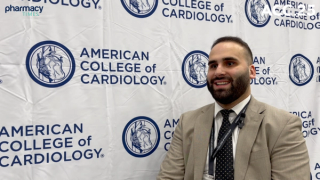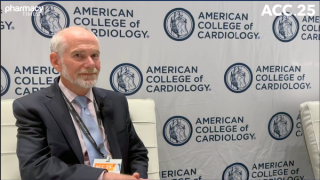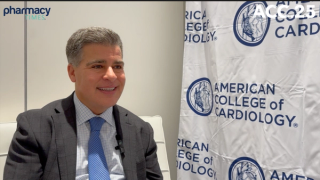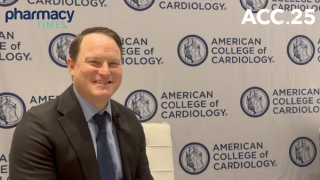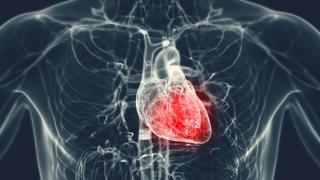
Cardiovascular Health
Latest News
Latest Videos

CME Content
More News
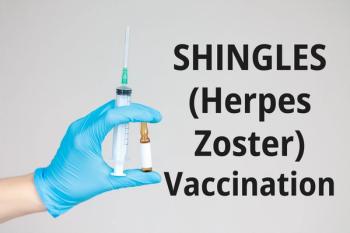
The recombinant shingles vaccine not only reduces herpes zoster and herpes zoster ophthalmicus but is also associated with lower risks of hospitalization for stroke and myocardial infarction in adults aged 50 and older.

Individuals with bipolar disorder are at nearly a 2-fold higher risk of heart failure, which is marked as the main cause of premature cardiovascular mortality.

Individuals with cognitive and physical disabilities faced difficulties in health care utilization and had reduced rates of preventive cardiovascular screenings during the pandemic.

FDA approves a new liquid formulation of losartan for hypertension treatment, enhancing accessibility for adults and children over 6 years old.

Aficamten offers new hope for HCM patients, showing significant clinical benefits and safety in recent trials, enhancing treatment options.

In children and adolescents with overweight and obesity, exercise was demonstrated to reduce risk factors associated with cardiovascular disease, such as lipid and triglyceride levels.

Host Craig Beavers reviews key studies and insights from the upcoming ESC Congress 2025, focusing on groundbreaking research in cardiology and treatment advancements.

Discover effective strategies for managing obesity to enhance cardiovascular health, including innovative treatments and the vital role of pharmacists.

Promoting heart health in children reduces obesity and chronic disease risks, ensuring better overall well-being into adulthood.

In the SURPASS-CVOT clinical trial, tirzepatide was non-inferior to dulaglutide in a composite score of cardiovascular outcomes in patients with type 2 diabetes (T2D) and atherosclerotic cardiovascular disease (ASCVD).

By targeting aldosterone in a 2-dose regimen, baxdrostat effectively lowers mean seated systolic blood pressure in patients with difficult-to-treat hypertension.

Experts discuss groundbreaking Hot Line trials at the European Society of Cardiology Congress 2025, offering insights into the latest cardiovascular research.

A meta-analysis suggests that long-term P2Y12 inhibitor monotherapy after percutaneous coronary intervention may offer superior protection against major adverse cardiac and cerebrovascular events compared with aspirin, without increasing major bleeding risk—potentially challenging current guideline recommendations for antiplatelet therapy beyond 1 year.

Jeffrey I. Weitz, OC, MD, FAHA, FRCPC, FACP, FRSC, FACC, FESC, FCAHS, discusses AZALEA-TIMI 71 trial data showing that the long-acting factor XI inhibitor abelacimab is associated with low periprocedural bleeding risk, supporting potential simplification of anticoagulation protocols for most elective and some urgent procedures.
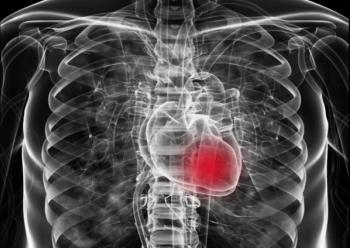
Finerenone plays an emerging role in managing complex heart failure with preserved ejection fraction (HFpEF).

Results from the ZENITH trial show sotatercept's promise for pulmonary arterial hypertension treatment.

Challenges faced by individuals living with HIV include weight gain, cardiovascular risks, and healthy aging strategies.

Hypertension is widespread and linked to serious health risks, but new treatments for resistant cases target new mechanisms of action.

The COBBRA trial compared bleeding risk with rivaroxaban vs apixaban in patients with acute venous thromboembolism.

The expanded instructions for use labeling expand on the Farawave and Farawave Nav Pulsed Field Ablation (PFA) catheters.

Previously indicated to reduce the risk of end-stage kidney disease, cardiovascular death, and hospitalization for heart failure (HF) in chronic kidney disease, finerenone is now approved for patients with HF directly, offering a new treatment option.

The 2025 National Lipid Association (NLA) Scientific Sessions highlighted a strategic shift toward early, aggressive cardiometabolic intervention, underscoring the vital role of pharmacists in implementing emerging therapies and optimizing cardiovascular risk reduction.

Experts discussed the promising future of pericarditis treatment.

The data emphasize the idea that there are no safe exposure limits as well as the need for guidelines.

New findings question the integrity of ticagrelor's clinical trials, raising safety concerns and impacting its use in cardiovascular care.








